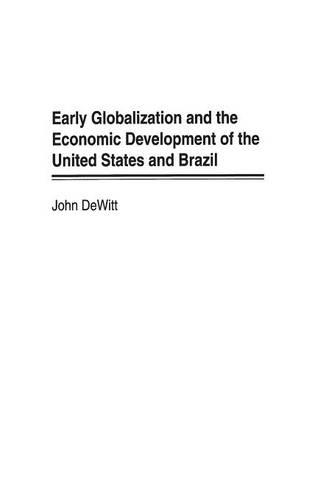
Early Globalization and the Economic Development of the United States and Brazil
(Hardback)
Publishing Details
Early Globalization and the Economic Development of the United States and Brazil
By (Author) John W. DeWitt
Bloomsbury Publishing PLC
Praeger Publishers Inc
30th January 2002
United States
Classifications
Tertiary Education
Non Fiction
Globalization
Economic history
330.9
Physical Properties
Hardback
200
Description
Offering unique insights into globalization, economic development, and the histories of the United States and Brazil, DeWitt highlights the dramatically different consequences incorporated into the world economy for these two nations. Placing the controversial globalization process in historical context, DeWitt brings this increasingly important topic to life through the experiences of the two most populous states of the Western Hemisphere--Brazil and the United States. Comparing their development processes from the Colonial Era to 1900, he highlights the dramatically different consequences that are incorporated into the world economy for these two states. Sharing similar experiences during the Colonial Era, the countries' internal differences and differing relationships with Great Britain, the economic superpower of the 19th Century, led to very different development paths. By 1900, the United States had become a member of the economic core, while Brazil remained mired in the semi-periphery. Pointing out the similarities and differences in the economic development of the United States and Brazil, DeWitt emphasizes that the manner of incorporation into the world economy greatly affected one becoming a superpower and the other remaining a developing nation. This book offers unique insights into globalization, economic development, and the histories of the United States and Brazil.
Reviews
Addresses how economic development in Brazil and the United States was influenced by the ways in which each country joined the world economy and explains why the United States has become the world's dominant economic power while Brazil remains in the semiperiphery of the world economy.-Journal of Economic Literature
"Addresses how economic development in Brazil and the United States was influenced by the ways in which each country joined the world economy and explains why the United States has become the world's dominant economic power while Brazil remains in the semiperiphery of the world economy."-Journal of Economic Literature
Author Bio
JOHN DEWITT is Adjunct Professor of Geography at the University of Florida.
